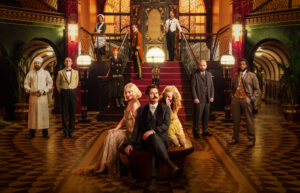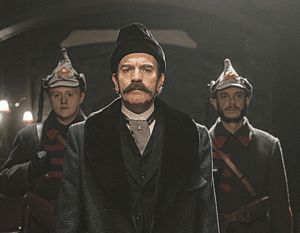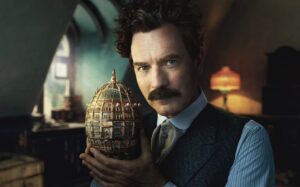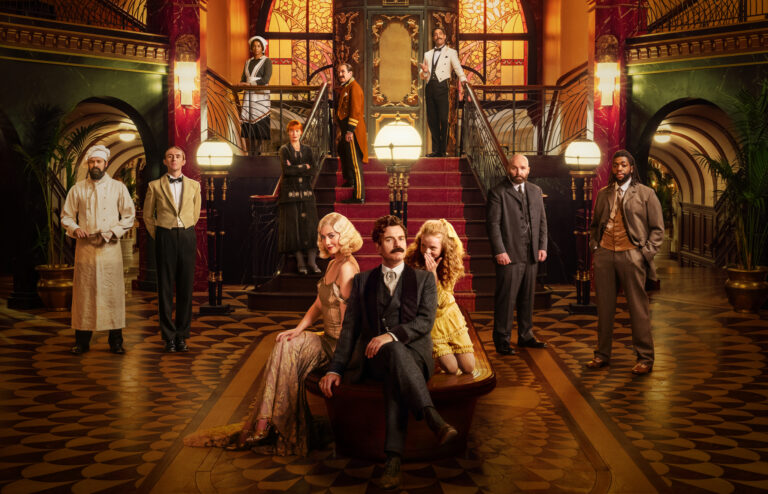It’s 1920s Moscow, four years after the start of the Russian Revolution. The aristocracy has been put on trial, staring down their inevitable doom. Count Alexander Rostov, a Russian aristocrat, is sentenced by a Bolshevik tribunal for “social parasitism” — the crime of living off of the efforts of others. His fate is surely death, as it has been for the others of his class.
Right from the beginning, A Gentleman in Moscow, the new Showtime historical series adapted from Amor Towles’ best-selling 2016 novel, places the viewer in a dramatic turning point in history: the suddenly upside-down world of post-Revolution Russian aristocrats.
What first seems like a dark tale of a prison sentence unfolds as an enchanting drama that blends poetry and politics, romance and espionage as a colourful cast of hotel staff and revolving guests take the Count on a transformative journey across the next 30 years of history.

Outside the hotel walls, Russia is uneasy with itself. The social and political upheaval of the 1917 Revolution brought the death of the country’s royal family, the House of Romanov, and the fall of Russia’s bourgeoisie class. It impacted everyone, no matter their social standing. Some came out as winners while others faced death, imprisonment and exile.
As a member of Russia’s elite class, a similar tragic fate awaits the Count. Just when things are looking bleak for him, the unexpected happens. Destiny decides to smile at him grudgingly, and he is allowed to live. What saves the Count is a poem, attributed to him, which criticized the elites and the royal family. It’s described as “a call for revolutionary action,” but in the eyes of some Bolsheviks, a contradiction. After all, the Count benefited from the same upper-class institutions. As punishment, he is sentenced to stay at the grand Metropol forever, under pain of death-by-firing-squad if he ever leaves.
Though stripped of his title and wealth and forced to vacate his more luxurious hotel room to a cold and bare one in the servant’s quarters, the world of the Metropol is lively, expansive and varied. The Count makes a friend in curious nine-year-old Nina, who shows him all the secret rooms with seized treasures – including from the Count’s own possessions – and hidden attics to spy on the happenings in the ballroom below. The investigative nature of the young girl doesn’t stop there; she asks the Count about his past life as an aristocrat.
A vibrant man with an optimistic disposition, the Count is quite the comedian – no matter what life throws at him. With his styled moustache, he acts more like an eccentric professor but carries himself with confidence and a this-life’s-a-breeze demeanour attributed to people who haven’t had to struggle so much, reminding us of his previous life. He is not of the stuffy and rude kind of aristocrat, but rather someone genuinely interested in learning about other people, which makes him popular with most of the hotel’s inhabitants. The staff still call him ‘Your Excellency,’ even though they no longer have to.
Carrying this off is a charismatic Ewan McGregor, well cast as the intriguing protagonist. He makes the viewer feel like we’re on an adventure with him. Every emotion is felt, from moments of celebration to the more sobering turns, as the Count unlearns his more selfish, upper-crust tendencies and shifts focus to those around him.

Whilst a member of the Bolsheviks regime closely watches the Count’s daily activities to ensure no rules are broken or escape attempted, turmoil rises just outside the doors. The poor are fighting for equality as the government rules with an iron fist. In an early episode, the Count’s long-time best friend Mikhail gives an impassioned speech insisting that the poor deserve to live a better life.
Prior to 1917, Russia was a rigid class system ruled by tsars, their version of monarchs, and the “landed nobility” inherited their wealth, their estates, and their servants. They did not work, and they remained insulated from the struggles outside their high walls. That was the Count’s life before the Revolution. Civil unrest and the discontent of the political class fomented the uprising that ultimately abolished the monarchy and the wealthy classes, replacing them with the Bolshevik Communist Party.
As the series follows the rise of the new ruling class, we see how people become suspicious of each other. The wealthy live in fear that they might be next on the chopping board as the poor continue to struggle just to survive. Despite the old system being replaced with the new, the same authoritarian structures harden and deep inequalities persist.

Through flashbacks, we see the high contrast of the Count’s life before the Revolution. Shaky at times, as if inside a dream, they reveal memories of happier times — a child playing in the garden with his grandmother — and tragic memories, as when a home burns down.
As the memories weave together with his present life, we see how, in a way, the life of leisure enjoyed by aristocrats is the very thing that has imprisoned the Count. He lives inside his gilded cage, much like Russia’s famed, bejeweled fabergé egg. Yet through the years, he discovers that a different kind of riches can be found in his confinement — through community, courageous acts, and love.
Though its world is fictional, A Gentleman In Moscow is an engrossing if at times sobering watch that gives us a glimpse into a pivotal era, capturing the Russian bourgeoisie just as they are losing their grip on society. It also sheds light on the dawn of the Soviet Union during the early 20th century, which paved the way for today’s autocratic system, bureaucracy, and stark inequalities. Has much changed? That’s a question the viewer might have as the series rolls out against current news of the political and social order in what is now known as the Russian Federation.
A Gentleman in Moscow is now streaming on Paramount+





















Start a watercooler conversation: